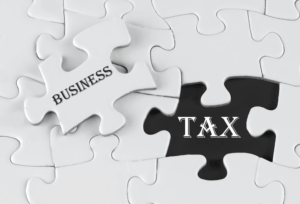
Like all of our payroll options, our small business payroll software integrates with other Paychex services through Paychex Flex to help you take your organization where it needs to go. It takes attention to details with requirements that you can’t make mistakes on. While it is possible to process payroll manually, you are likely better off paying a small fee to have a payroll provider do all the work for you.

Bookkeeping
- As businesses grow, it becomes easier to let small activities slip.
- A bookkeeper is someone who prepares your accounts, documenting daily financial transactions.
- Financial decisions regarding a company’s tolerance for additional employees might be made using this information.
- This site does not include all companies or products available within the market.
- However, their years of experience, your state and the complexity of your accounting needs affect the price.
- Businesses must consider the skills you’ll need to be a bookkeeper in the U.S. and the differences between bookkeepers and accountants.
There are plenty of opportunities for career advancement in this field. The following subsections focus on continuous learning, certification, and career pathways for bookkeepers. In summary, attention to detail and understanding of accounting principles are two crucial skills for any bookkeeper. Continuous training and experience in applying these skills contribute to their ability to efficiently manage a company’s financial records and provide valuable insights for strategic decision-making.
Review and Approve Time Sheets

You can also run more advanced reports, such as A/P and A/R aging reports and profit and loss by class. Frank’s Auto Repair uses technology to stay current and keep its customers’ cars on the road and running smoothly. Owner Frank Roberts made the same discovery about payroll and his business, choosing Paychex to help ensure the process was efficient, accurate, and compliant with payroll tax requirements.

Payroll Management
- How your business operates is unique, and your bookkeeping follows suit.
- It enables them to effectively interpret and analyze financial data, providing valuable insights to company leaders when it comes to financial planning, budgeting, and forecasting.
- As mentioned earlier, bookkeepers are primarily responsible for maintaining accurate financial records and preparing financial statements.
- The balance sheet shows your business’s balance of assets and liabilities.
- Many bookkeepers also use specialized software to significantly enhance efficiency in managing estimates, invoices, and payments.
- Let’s explore what bookkeepers do, some of the benefits of bookkeeping, and your options for using a bookkeeper.
When interviewing for a CPA, look for an accountant who understands tax law and accounting software and has good communication skills. They should understand your industry and the unique needs and requirements of small businesses. Bookkeeping, in the traditional sense, has been around as long as there has been commerce ― since around 2600 B.C.
Their primary responsibilities include maintaining general accounting ledgers, recording journal entries, and generating financial statements. Bookkeepers are often responsible for preparing key financial statements, such as the income statement, balance sheet, cash flow statement, and statement of owner’s equity. Bookkeeping is the regular practice of updating a company’s financial records to reflect all financial transactions, credits, and debits. In small businesses, a bookkeeper may be responsible for all financial record-keeping duties. This can include managing invoices, expenses, and bank reconciliations.
All in one, paperless record keeping
Accounting is the interpretation and presentation of that financial data, including aspects such as tax returns, auditing and analyzing performance. In addition to maintaining the general ledger, corporate bookkeepers must manage subsidiary accounts linked to the main accounts. These subsidiary accounts track specific financial activities within the corporation, providing a more detailed view of the company’s financial health. An understanding of accounting bookkeeping and payroll services principles also empowers bookkeepers to make informed strategic decisions for the business. It enables them to effectively interpret and analyze financial data, providing valuable insights to company leaders when it comes to financial planning, budgeting, and forecasting. A bookkeeper with strong attention to detail can identify inconsistencies or inaccuracies in financial records, ultimately helping the business maintain clear and accurate documentation.
- While it’s not always necessary to have a degree, some companies will look for candidates with coursework in accounting.
- This habit improves communication, boosts transparency with your bookkeeping team, and promotes longevity and compliance.
- The most important parts of doing your own bookkeeping are staying organized and keeping track of the details.
- Create beautiful invoices, accept online payments, and make accounting easy—all in one place—with Wave’s suite of money management tools.
- We’ll examine the skill sets required for successful payroll management, such as attention to detail, understanding of tax regulations, and proficiency in data entry.
- Includes ADP’s latest HR tools such as live HR support, employee handbook wizard, proactive compliance alerts, HR guidance and forms, and a job description wizard.